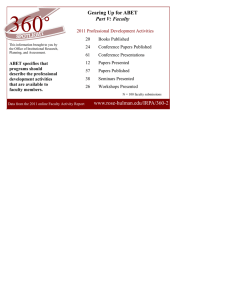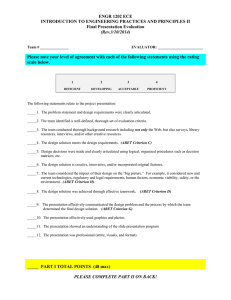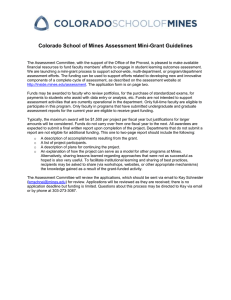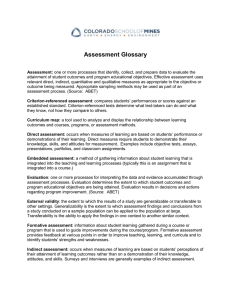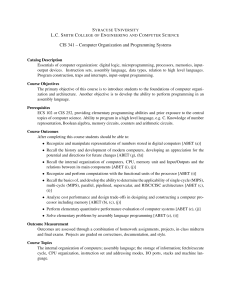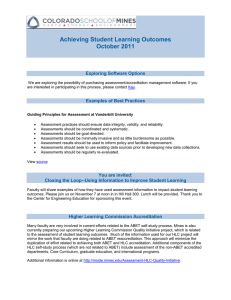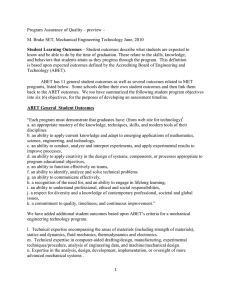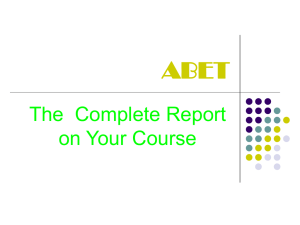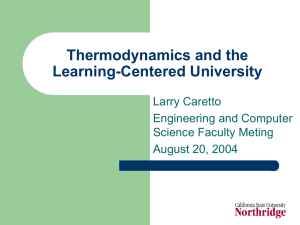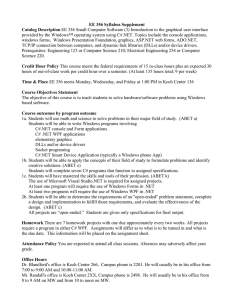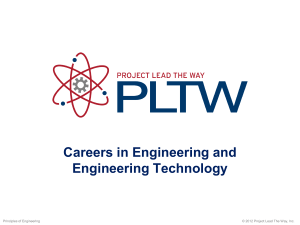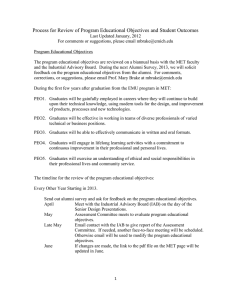Achieving Student Learning Outcomes January 2012 Annual Undergraduate Assessment Reports
advertisement
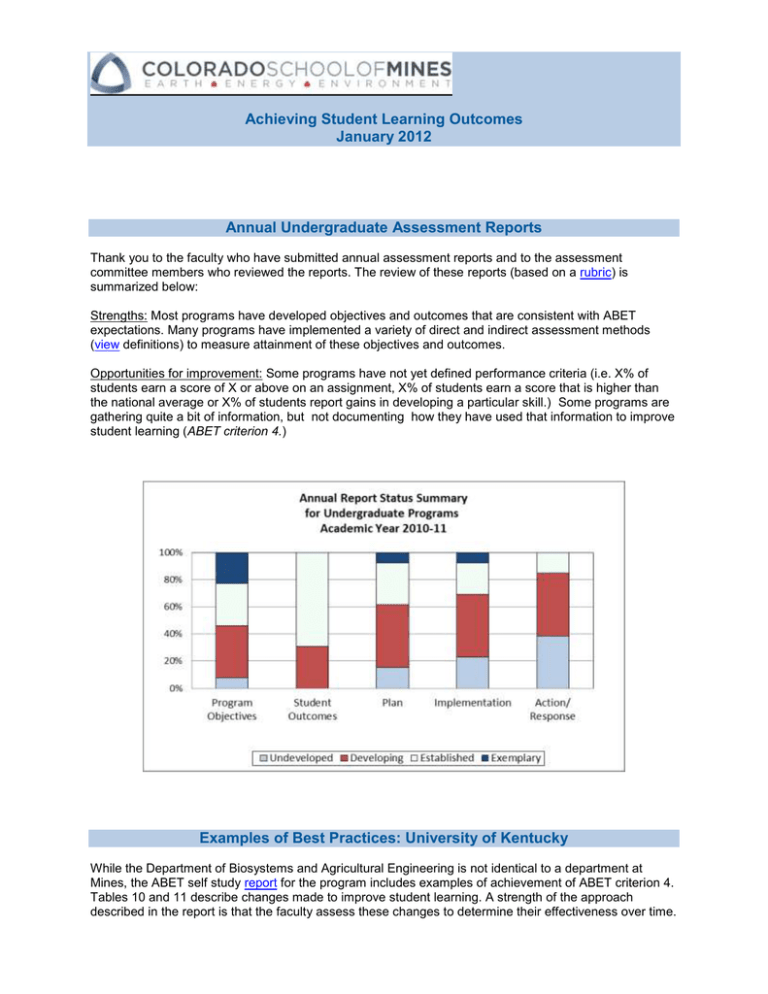
Achieving Student Learning Outcomes January 2012 Annual Undergraduate Assessment Reports Thank you to the faculty who have submitted annual assessment reports and to the assessment committee members who reviewed the reports. The review of these reports (based on a rubric) is summarized below: Strengths: Most programs have developed objectives and outcomes that are consistent with ABET expectations. Many programs have implemented a variety of direct and indirect assessment methods (view definitions) to measure attainment of these objectives and outcomes. Opportunities for improvement: Some programs have not yet defined performance criteria (i.e. X% of students earn a score of X or above on an assignment, X% of students earn a score that is higher than the national average or X% of students report gains in developing a particular skill.) Some programs are gathering quite a bit of information, but not documenting how they have used that information to improve student learning (ABET criterion 4.) Examples of Best Practices: University of Kentucky While the Department of Biosystems and Agricultural Engineering is not identical to a department at Mines, the ABET self study report for the program includes examples of achievement of ABET criterion 4. Tables 10 and 11 describe changes made to improve student learning. A strength of the approach described in the report is that the faculty assess these changes to determine their effectiveness over time. Core Curriculum Survey Invitation The Core Curriculum Committee invites you to complete a survey regarding the effectiveness of the Core Curriculum. The survey is online. Your feedback will: 1. Enable the committee to develop an informed understanding of the strengths and potential areas of improvement related to the Core. 2. Guide our discussions regarding strategies for strengthening the Core. 3. Supplement the information we have gathered from employers, students, and alumni. 4. Support assessment and improvement efforts, which are related to the School’s mission as well as to our ABET and HLC re-accreditation initiatives. Your responses are greatly appreciated. Assessment Mini-grant Funding The Assessment Committee, with the support of the Office of the Provost, is pleased to make available financial resources to fund faculty members’ efforts to engage in student learning outcomes assessment. We are launching a mini-grant process to support school-wide, multi-department, or program/department assessment efforts. The funding can be used to support efforts related to developing new and innovative components of a complete cycle of assessment, as described on the assessment website. Typically, the maximum award will be $1,500 per project per fiscal year but justifications for larger amounts will be considered. Funds do not carry over from one fiscal year to the next. All awardees are expected to submit a final written report upon completion of the project. The Assessment Committee will review the applications, which should be sent via email for review. Applications will be reviewed as they are received; there is no application deadline but funding is limited. Questions may be directed to Kay Schneider. Complete details of the process, eligibility requirements and an application form are online. Best Practices in Assessing Student Learning Outcomes The Assessment Committee has developed a “Checklist of Best Practices” in assessing student learning outcomes. This document lists best practices related to: Developing program objectives Developing student outcomes Developing a strong assessment plan Implementing assessment plans Using results/engaging in continuous improvement Another useful resource is the list of Nine Principles of Good Practice for Assessing Student Learning. This newsletter is published by the assessment office: Kay Schneider, Director kmschnei@mines.edu or 3087 http://inside.mines.edu/assessment
